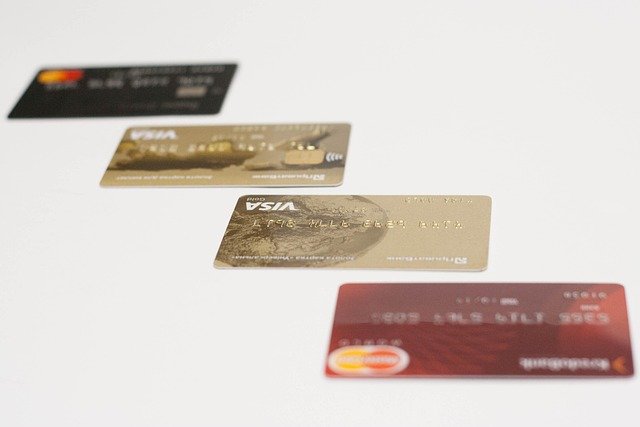Debt Consolidation: A Path to Simplified Financial Management
Debt consolidation combines multiple debts into a single payment, potentially reducing interest rates and simplifying your monthly obligations. This financial strategy can help streamline your debt management while potentially saving money over time. Whether you're dealing with credit card balances, personal loans, or other unsecured debts, consolidation offers a structured approach to regaining control of your finances and working toward a debt-free future.

Understanding Your Debt Relief Options
When facing multiple debts, several consolidation methods are available to consider. Debt consolidation loans allow you to borrow money to pay off existing debts, leaving you with one monthly payment. Balance transfer credit cards offer promotional interest rates, typically 0% for an introductory period. Home equity loans or lines of credit use your home as collateral, often providing lower interest rates but adding risk to your property.
Personal loans through banks, credit unions, or online lenders represent another common approach. These unsecured loans don’t require collateral but may have higher interest rates than secured options. Debt management plans through credit counseling agencies negotiate with creditors to reduce interest rates and create structured payment schedules.
Choosing the Right Debt Solution for You
Selecting an appropriate debt solution depends on your financial situation, credit score, and debt amount. Evaluate your total debt, monthly income, and existing interest rates before making decisions. Consider how long you need to repay the consolidated debt and whether you can qualify for better terms than your current obligations.
Your credit score significantly impacts available options and interest rates. Higher credit scores typically qualify for better consolidation loan terms and balance transfer offers. Lower scores may limit options to secured loans or credit counseling programs. Calculate potential savings by comparing new payment terms with existing debt obligations, including fees and interest over the full repayment period.
Key Steps to Find a Reputable Debt Provider
Research potential providers thoroughly before committing to any debt consolidation program. Check credentials with relevant regulatory bodies and review ratings from organizations like the Better Business Bureau. Verify licensing requirements in your state, particularly for debt settlement companies or credit counseling agencies.
Request detailed information about fees, interest rates, and terms from multiple providers. Legitimate companies provide transparent pricing without requiring upfront payments for debt settlement services. Read customer reviews and testimonials, but focus on patterns rather than individual complaints. Contact your state attorney general’s office to check for any formal complaints against potential providers.
Meet with representatives to discuss your specific situation and ask detailed questions about their services. Reputable providers offer free consultations and provide written agreements outlining all terms and conditions before you commit to their services.
Comparing Debt Solution Program Costs and Fees
| Service Type | Provider Example | Typical Cost Range | Key Features |
|---|---|---|---|
| Personal Loan | LendingClub | 8.05%-35.89% APR | Fixed payments, no collateral |
| Balance Transfer | Chase Slate Edge | 0% intro APR 18 months | Low transfer fees, credit required |
| Credit Counseling | National Foundation for Credit Counseling | $0-$79 setup fee | Non-profit, education focus |
| Home Equity Loan | Wells Fargo | 7.74%-11.24% APR | Lower rates, home at risk |
Understanding the true cost of debt consolidation requires examining interest rates, fees, and payment terms. Personal loans typically charge origination fees of 1-8% of the loan amount plus interest rates based on creditworthiness. Balance transfer cards may offer promotional rates but charge transfer fees of 3-5% of transferred balances.
Credit counseling agencies often charge modest setup fees and monthly maintenance fees, usually under $50 per month. Debt settlement companies may charge 15-25% of enrolled debt amounts, though fees are typically collected only after successful settlements. Home equity options generally offer lower interest rates but involve closing costs and appraisal fees similar to mortgage transactions.
Prices, rates, or cost estimates mentioned in this article are based on the latest available information but may change over time. Independent research is advised before making financial decisions.
Achieving Financial Freedom After Debt Relief
Successful debt consolidation requires commitment to new financial habits and disciplined payment schedules. Create a realistic budget that accommodates your consolidated payment while covering essential expenses. Avoid accumulating new debt on credit cards or through additional borrowing during the consolidation period.
Monitor your progress regularly and celebrate milestones along your debt repayment journey. Consider setting up automatic payments to ensure consistent, on-time payments that can improve your credit score over time. Build an emergency fund, even if small initially, to avoid relying on credit for unexpected expenses.
Develop long-term financial goals beyond debt elimination, including retirement savings and investment strategies. Many people find that the discipline required for successful debt consolidation creates positive financial habits that benefit them throughout their lives. Consider working with financial advisors or continuing education through reputable financial literacy programs to maintain your improved financial position.
Debt consolidation represents one tool in a comprehensive approach to financial wellness. When implemented correctly with appropriate providers and realistic expectations, it can significantly simplify debt management while potentially reducing overall costs. Success depends on choosing the right consolidation method for your situation, working with reputable providers, and maintaining disciplined financial habits throughout the process.



